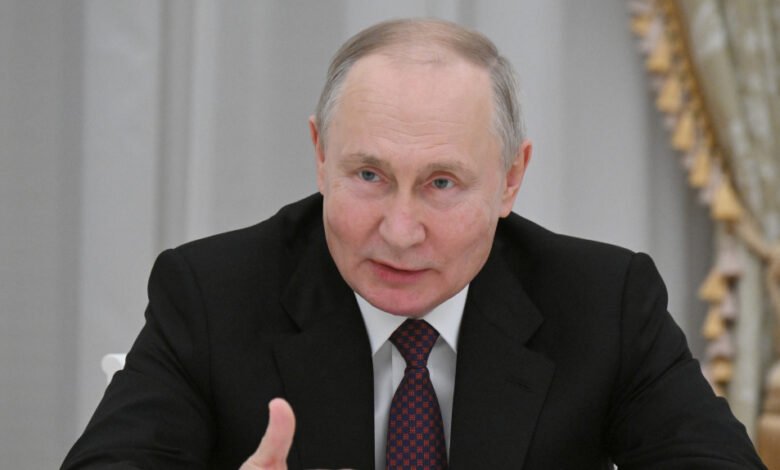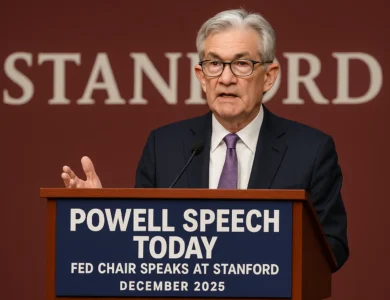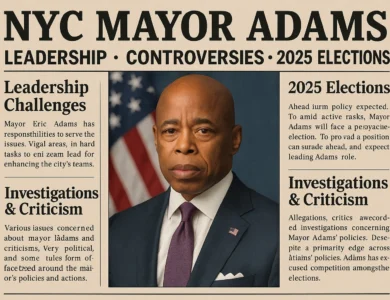
Vladimir Putin, Russia’s longest-serving leader since Stalin, has remained one of the most polarizing figures in modern geopolitics. Since assuming power in 1999, Putin’s controversial decisions have consistently dominated international headlines, sparking debates across diplomatic circles and reshaping global politics. His leadership style, characterized by bold moves and calculated risks, has often put Russia at odds with Western nations and international organizations.
The Russian President’s policies have ranged from domestic constitutional changes to military interventions that have fundamentally altered regional power dynamics. These decisions have not only impacted Russia’s relationship with the international community but have also influenced global security, economics, and diplomatic relations. Understanding these controversial political moves provides crucial insight into contemporary international relations and the ongoing tensions between Russia and the West.
Putin’s leadership decisions have consistently challenged established international norms, whether through territorial disputes, media restrictions, or opposition to Western influence. Each controversial move has been met with varying degrees of international condemnation, sanctions, and diplomatic isolation, yet Putin has maintained his course, often justifying actions as necessary for Russian national interests and security.
This comprehensive analysis examines ten of the most shocking political decisions made during Putin’s tenure, exploring their immediate consequences and long-term implications for global stability. From military campaigns to constitutional reforms, these decisions have shaped modern Russia and continue to influence international relations today.
1. Vladimir Putin: The Second Chechen War (1999-2009)
Background and Escalation
Putin’s military intervention in Chechnya marked one of his earliest and most defining controversial decisions. When Putin assumed power, the Second Chechen War was already brewing, but his approach to the conflict dramatically escalated tensions. The war, which officially lasted from 1999 to 2009, became synonymous with brutal military tactics and widespread human rights violations.
International Response and Consequences
The conflict drew sharp criticism from international human rights organizations and Western governments. Putin’s war strategy included controversial military tactics that resulted in significant civilian casualties and displacement. The European Court of Human Rights later ruled that Russia had violated multiple articles of the European Convention on Human Rights during the conflict.
The Chechen conflict established Putin’s reputation as a leader willing to use overwhelming force to maintain territorial integrity, setting a precedent for future military interventions. This decision shaped international perceptions of Putin’s leadership style and Russia’s approach to internal conflicts.
2. Constitutional Amendments and Term Limit Extensions
The 2020 Constitutional Referendum
One of Putin’s most controversial political reforms came in 2020 when he orchestrated constitutional amendments that effectively allowed him to remain in power until 2036. This constitutional manipulation shocked international observers who had expected Russia to maintain democratic transitions of power.
Impact on Democratic Institutions
The constitutional changes included provisions that strengthened presidential powers while weakening judicial independence. Putin’s power consolidation effectively eliminated the possibility of meaningful political opposition and reduced Russia’s already limited democratic institutions.
Western governments and democracy advocates condemned these changes as authoritarian overreach, arguing that they fundamentally altered Russia’s political system. The decision reinforced international concerns about democratic backsliding in Russia under Putin’s leadership.
3. The Annexation of Crimea (2014)
Military Operation and International Law
Putin’s annexation of Crimea in 2014 represents perhaps his most internationally condemned decision. The Russian military intervention in Ukraine violated international law and established precedent for territorial acquisition through force in the 21st century.
Global Sanctions and Isolation
The Crimean annexation triggered the most comprehensive Western sanctions regime against Russia since the Cold War. Putin’s territorial expansion was universally condemned by Western nations, leading to Russia’s suspension from the G8 and ongoing diplomatic isolation.
Long-term Geopolitical Consequences
This controversial military decision fundamentally altered European security architecture and contributed to the deterioration of Russia-West relations. The annexation also emboldened other territorial disputes globally, demonstrating the potential consequences of Putin’s aggressive foreign policy.
4. Support for Syrian Government Forces
Military Intervention in Syria
Putin’s military support for Bashar al-Assad’s government in Syria beginning in 2015 marked Russia’s most significant Middle Eastern intervention since the Soviet era. This controversial alliance extended the Syrian conflict and complicated international peace efforts.
Humanitarian Concerns
Russian military operations in Syria, including airstrikes on hospitals and civilian infrastructure, drew widespread international condemnation. Putin’s Syria strategy prioritized military victory over humanitarian considerations, leading to accusations of war crimes from international organizations.
Regional Power Dynamics
The Syrian intervention successfully established Russia as a major Middle Eastern power broker, challenging Western influence in the region. However, Putin’s military support for Assad came at the cost of international legitimacy and humanitarian concerns.
5. Restrictions on Media Freedom and Civil Society
Press Freedom Deterioration
Putin’s media policies have systematically eliminated independent journalism in Russia. The implementation of restrictive media laws, including the “foreign agent” legislation, has effectively silenced critical voices and opposition media outlets.
Civil Society Crackdown
Putin’s civil society restrictions have targeted NGOs, human rights organizations, and political activists. These authoritarian measures have drawn criticism from international human rights organizations and democratic governments worldwide.
International Press Freedom Rankings
Russia’s press freedom rankings have consistently declined under Putin’s media control, with the country now ranking among the world’s most restrictive environments for journalists. These controversial media policies have become a symbol of Russia’s democratic decline.
6. Treatment of Political Opposition
High-Profile Opposition Cases
Putin’s opposition crackdown has included imprisonment, exile, and alleged assassination attempts against political rivals. The cases of opposition figures like Alexei Navalny have drawn international attention to Putin’s authoritarian tactics.
Systematic Political Repression
Putin’s political repression extends beyond individual cases to systematic elimination of opposition parties and movements. These controversial political measures have effectively created a one-party state under Putin’s control.
International Legal Consequences
The treatment of political opposition has resulted in individual sanctions against Russian officials and ongoing international legal proceedings. Putin’s authoritarian policies continue to face scrutiny from international courts and human rights organizations.
7. Nuclear Rhetoric and Military Posturing
Escalatory Nuclear Threats
Putin’s nuclear threats have become a recurring feature of international crises, raising global concerns about nuclear escalation. These controversial military statements have destabilized international security discussions and arms control efforts.
Military Modernization Programs
Putin’s military expansion has included significant investments in nuclear weapons and delivery systems, challenging existing arms control agreements. This controversial defense spending has contributed to a new arms race dynamic with Western powers.
International Security Implications
Putin’s nuclear posturing has complicated diplomatic efforts and increased global security risks. These controversial military policies have undermined decades of nuclear non-proliferation efforts and international security cooperation.
8. Energy Weaponization and Pipeline Politics
Natural Gas as Political Tool
Vladimir Putin energy diplomacy has consistently used Russia’s natural gas resources as political leverage against European neighbors. These controversial energy policies have included supply disruptions during political disputes and infrastructure manipulation.
Pipeline Infrastructure Control
Vladimir Putin pipeline strategy has sought to maintain European energy dependence while bypassing traditional transit countries. Projects like Nord Stream have become symbols of Russia’s energy influence and controversial geopolitical maneuvering.
European Energy Security
Vladimir Putin energy policies have forced European nations to reconsider their energy security strategies, leading to diversification efforts and renewable energy acceleration. These controversial economic decisions have had lasting impacts on global energy markets.
9. Interference in Foreign Elections
International Electoral Manipulation
Vladimir Putin election interference campaigns have targeted democratic processes in multiple countries, including the United States, European nations, and other regions. These controversial intelligence operations have undermined international democratic norms and electoral integrity.
Cyber Warfare and Information Operations
Vladimir Putin information warfare strategy has included sophisticated cyber attacks and disinformation campaigns designed to influence foreign political processes. These controversial digital operations have created new categories of international conflict and diplomatic tensions.
Democratic Institutions Under Attack
Vladimir Putin foreign interference has forced democratic nations to strengthen electoral security and counter-intelligence capabilities. These controversial activities have become a defining feature of modern international relations and democratic defense strategies.
10. The 2022 Military Operation in Ukraine
Full-Scale Military Invasion
Vladimir Putin decision to invade Ukraine in February 2022 represents his most consequential and internationally condemned action. This controversial military operation has resulted in the largest European conflict since World War II and unprecedented international isolation for Russia.
Global Economic Consequences
The Ukrainian conflict has triggered the most comprehensive sanctions regime in modern history, effectively isolating Russia from the global economy. Vladimir Putin war decision has caused worldwide inflation, food security crises, and energy market disruption.
Geopolitical Realignment
Vladimir Putin invasion of Ukraine has fundamentally restructured international alliances, strengthened NATO unity, and accelerated European defense integration. This controversial military action has isolated Russia diplomatically and strategically for potentially decades.
Conclusion
Vladimir Putin’s controversial decisions over more than two decades in power have consistently shocked the international community and reshaped global politics. From the Second Chechen War to the invasion of Ukraine, these shocking political moves have demonstrated Vladimir Putin willingness to challenge international norms and accept diplomatic isolation in pursuit of perceived Russian interests.
The cumulative impact of these controversial policies has transformed Russia from a potential Western partner into a strategic adversary, fundamentally altering international security dynamics. Vladimir Putin leadership decisions have consistently prioritized short-term political gains and territorial expansion over long-term diplomatic relationships and economic integration.
Understanding these controversial political choices provides essential insight into contemporary international relations and the ongoing challenges facing democratic nations. As Vladimir Putin regime continues to face international pressure and sanctions, these decisions serve as a reminder of how individual leadership choices can reshape global stability and international cooperation.
Read More: Pakistan Saudi Defence: From Partners to Pact






